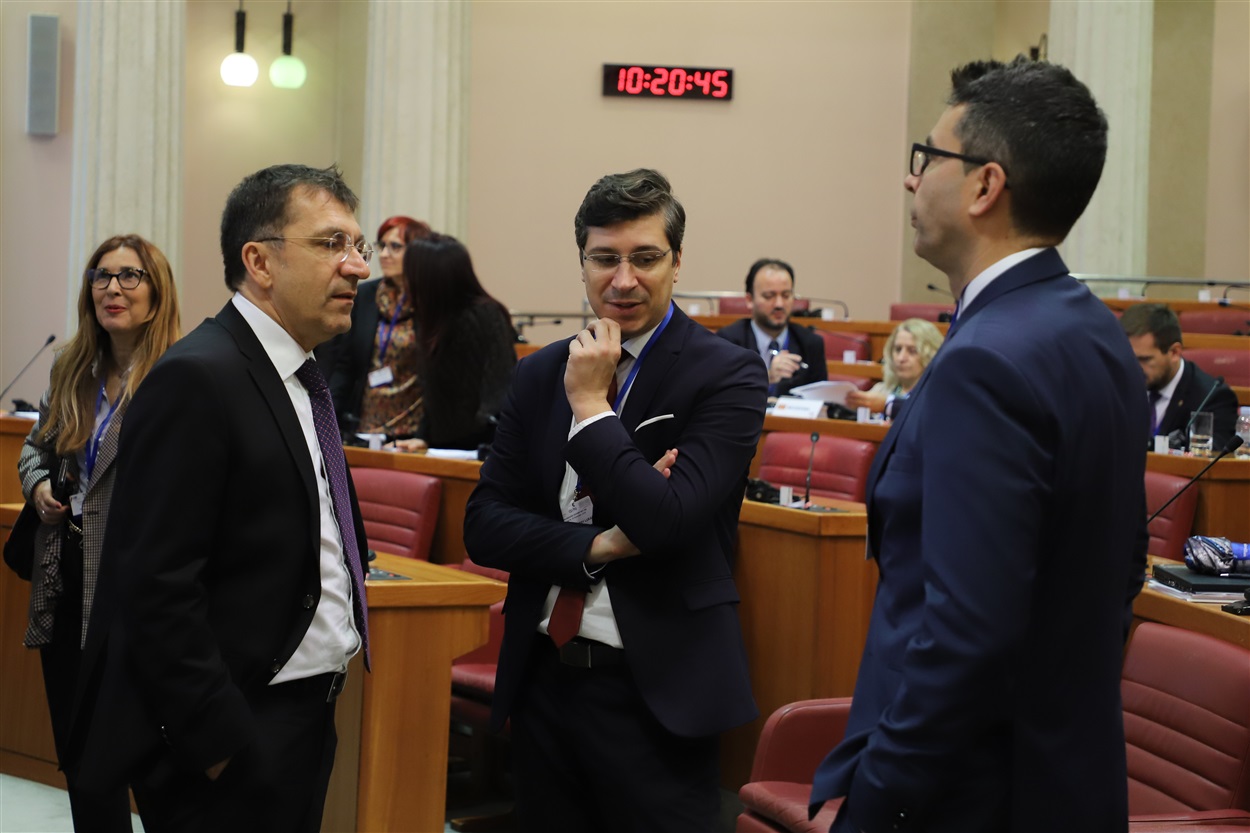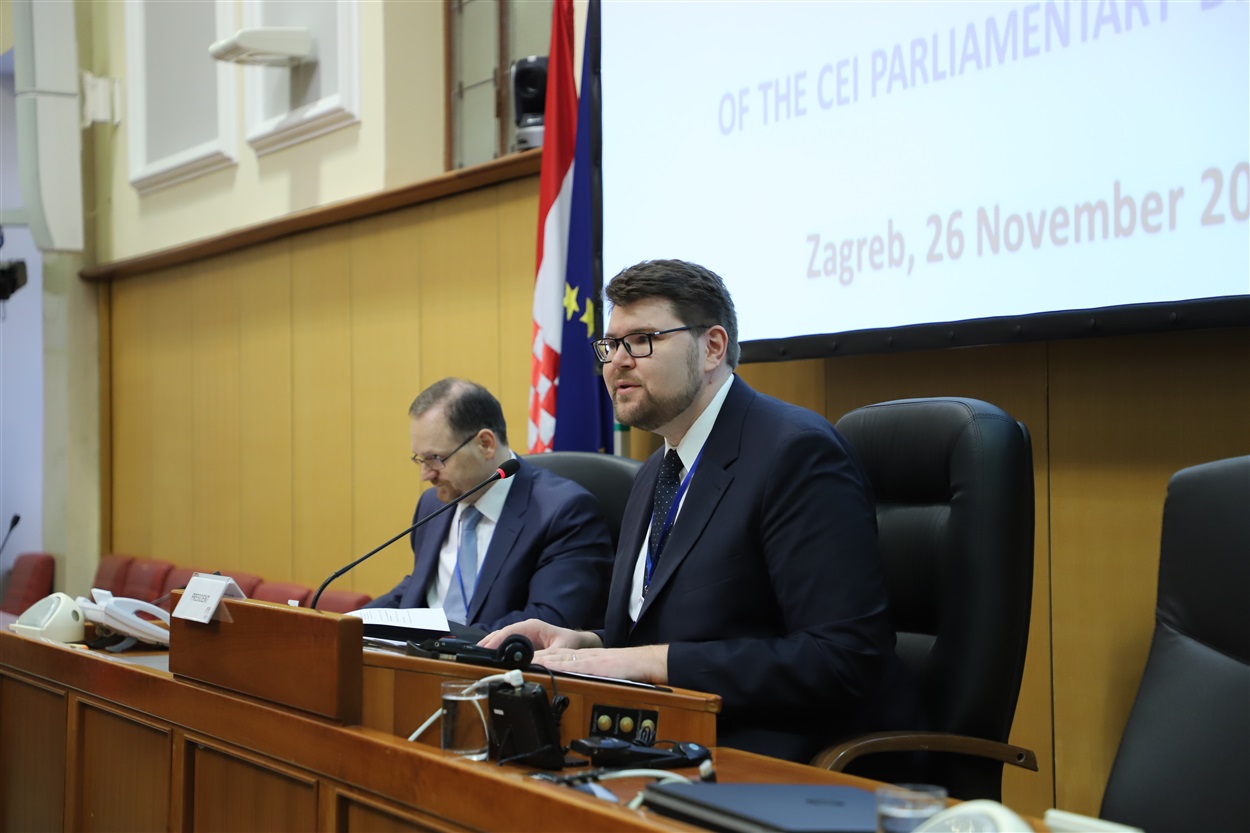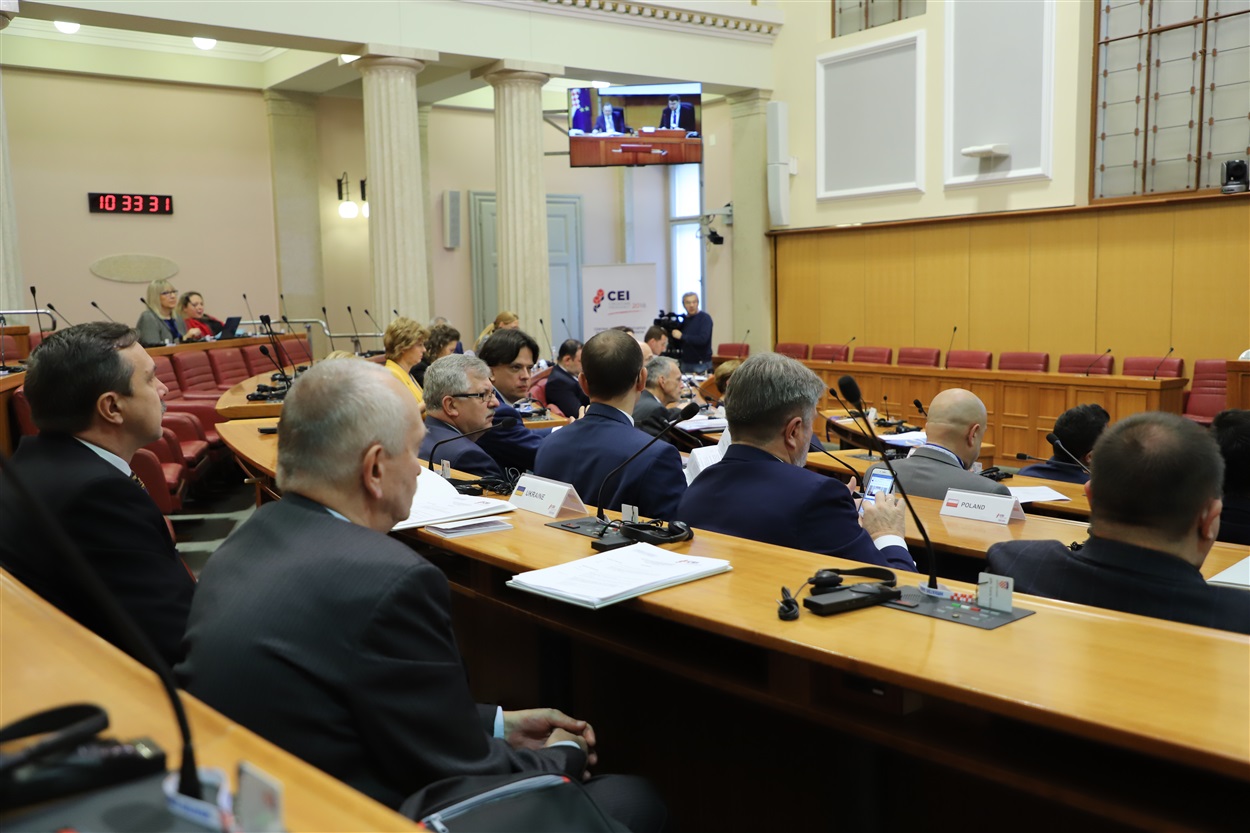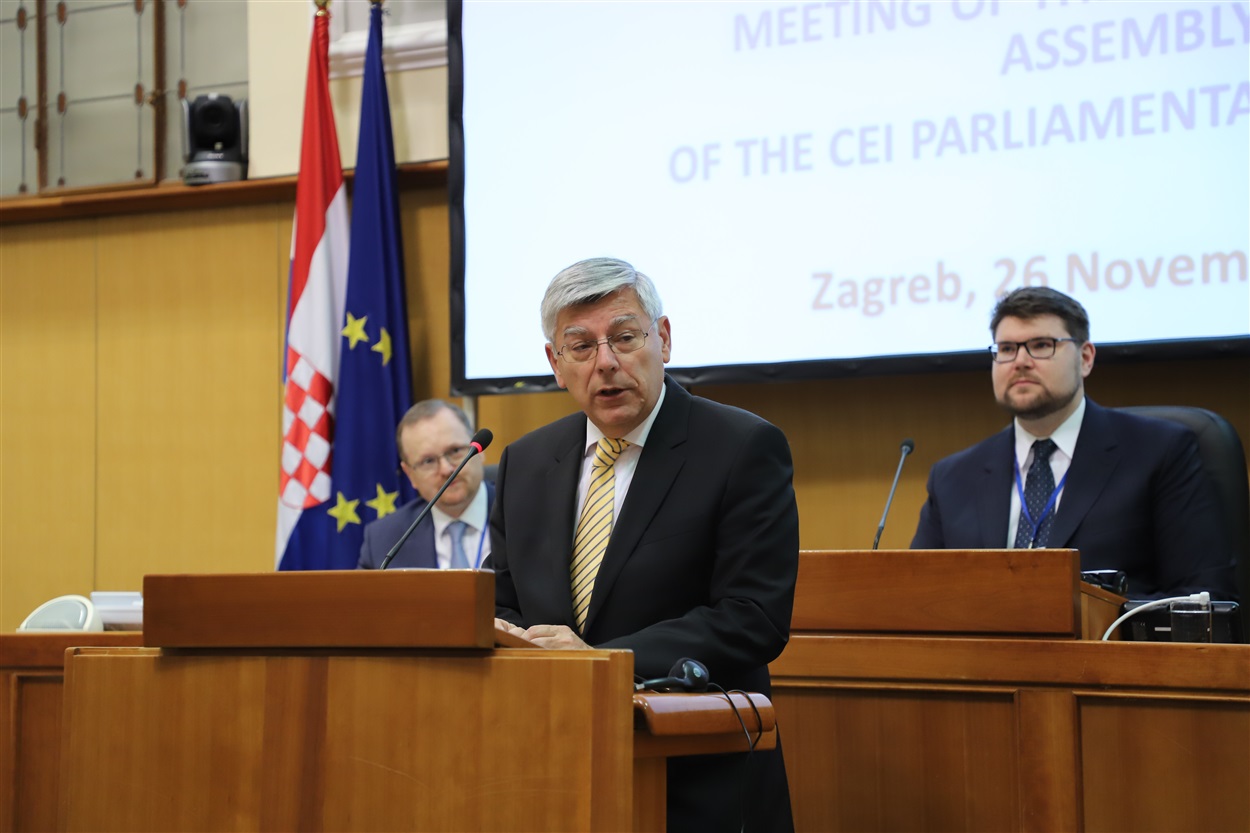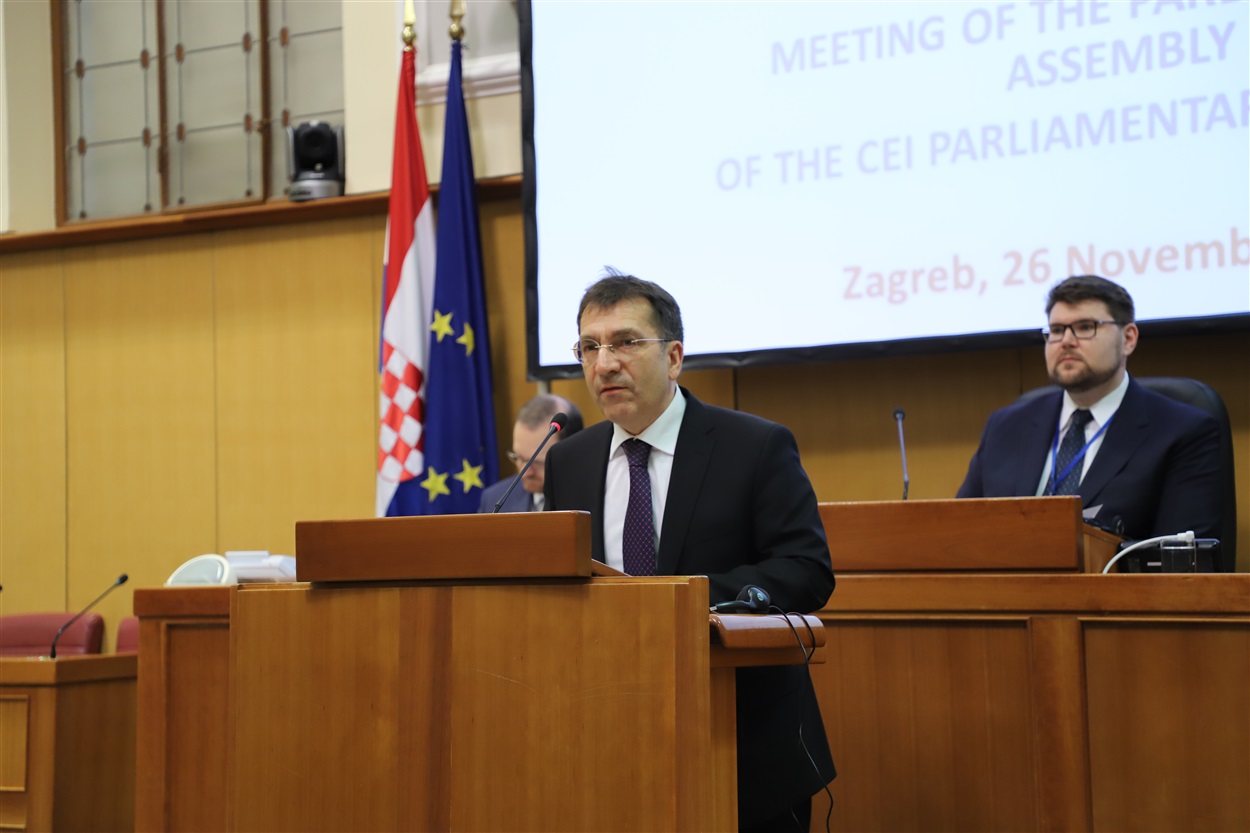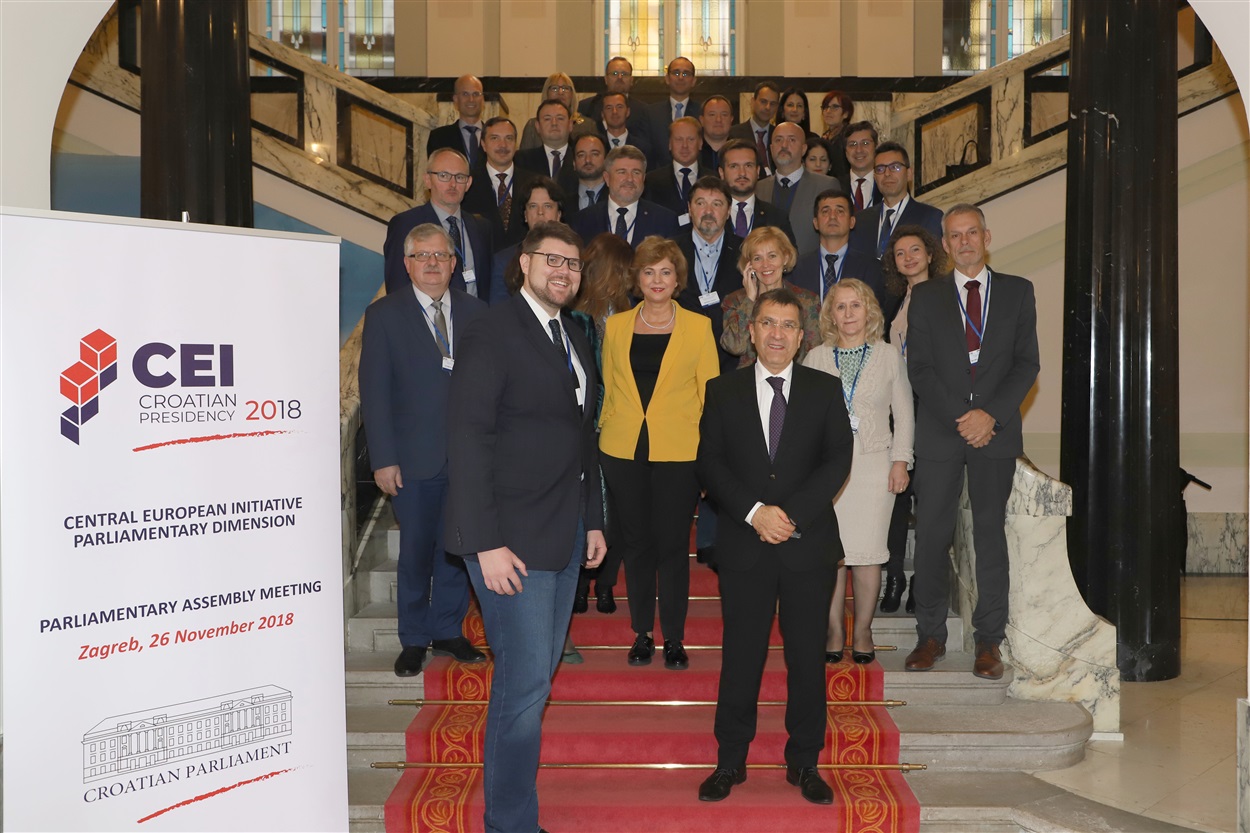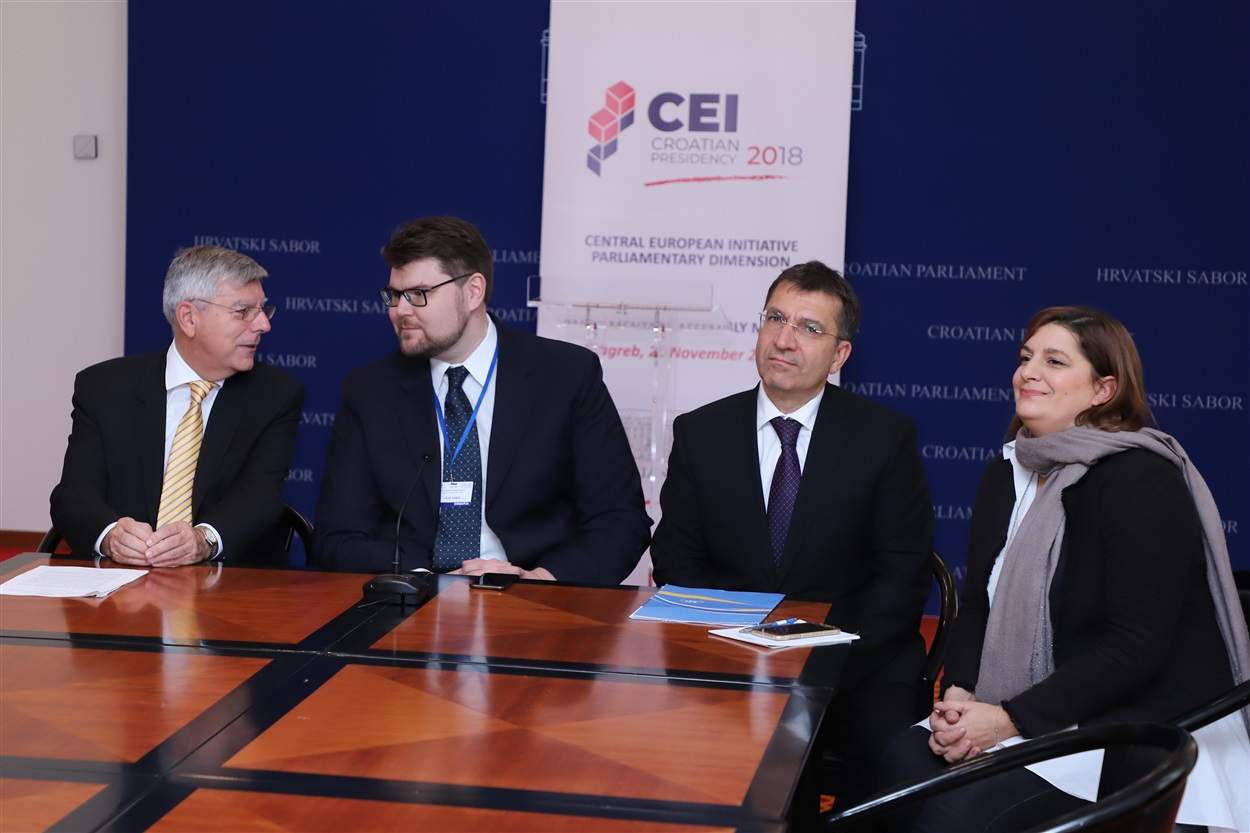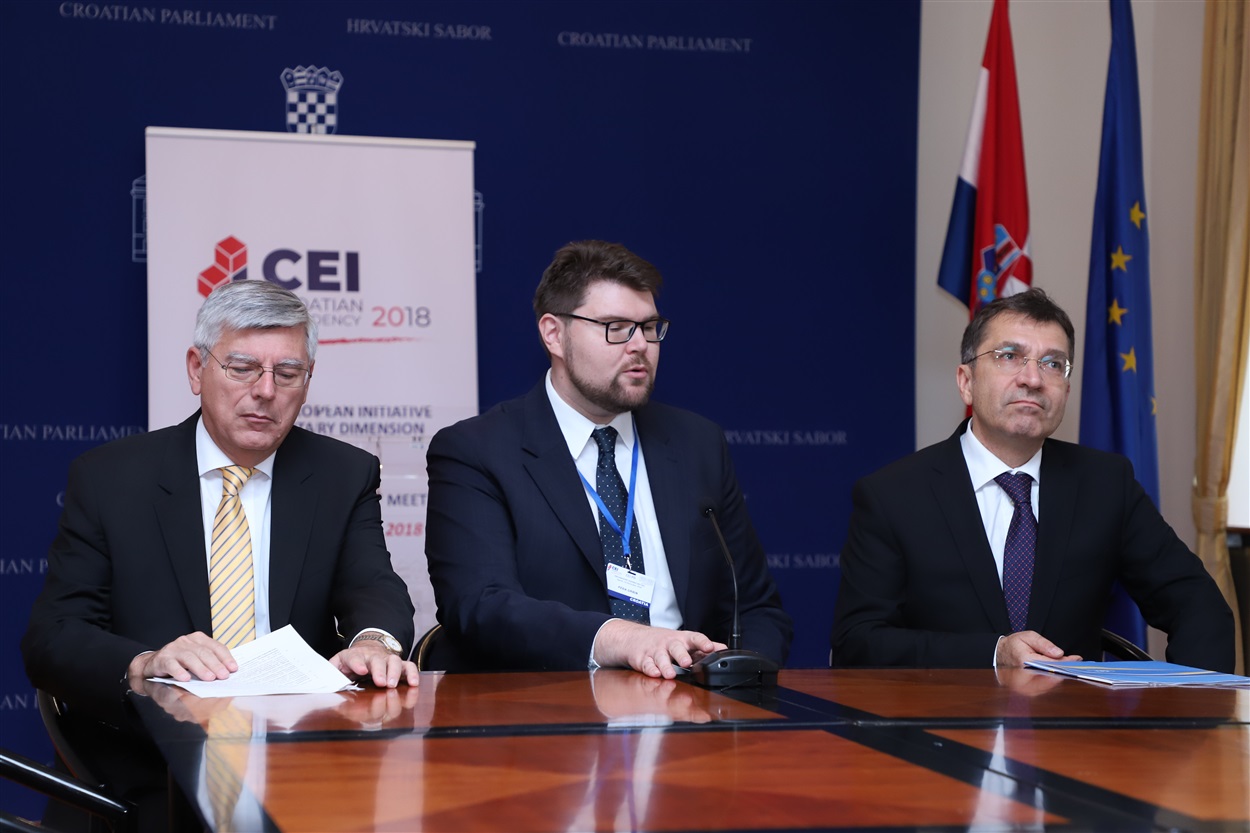
Zagreb - Within the framework of the Presidency of the Republic of Croatia over the Central European Initiative, the Parliamentary Assembly of the CEI Parliamentary Dimension was held today in the Croatian Parliament, with the participation of MPs from eleven CEI Member States.
Following the introductory remarks by the current Head of the Parliamentary Dimension, Peđa Grbin, Deputy Speaker of the Croatian Parliament, Željko Reiner, on behalf of the Speaker, addressed the present stressing that tourism in today's world had become a global phenomenon with a very large increase in tourist visits, especially in Europe as well as in other parts of the world. – Croatia had also experienced growth in tourism and therefore, in order to preserve its natural beauty and cultural heritage, it was largely based on the so-called sustainable tourism aimed at improving the transport, ecological and energy infrastructure, and in that context it was crucial to apply modern know-how, Reiner emphasized.
Peđa Grbin expressed the conviction that the Parliamentary Dimension of the Central European Initiative had the importance and political experience in solving the issues and challenges we were facing in the framework of sustainable tourism development. – Tourism as such brought significant economic benefits, while at the same time left marks on the local community and the environment, and therefore we should have worked on raising awareness and directing development towards sustainability, taking into account all three dimensions of sustainability: social, economic and ecological, said Grbin.
Alternate Secretary General of the CEI, Antal Nikoletti, briefly presented the history and activities of CEI, which in his opinion played an important role in the process of integration of the countries in the European Union and were strongly committed to Eastern European Partnership representing a recognizable framework for cooperation between the EU and partner countries. CEI, said Nikoletti, represented a cross regional platform that incorporates the Visegrad Group, South East Europe, the eastern countries and Italy. He mentioned the adoption of the CEI Action Plan, which showed that European integration remained on the top of the CEI Agenda.
Frano Matušić, State Secretary at the Ministry of Tourism of the Republic of Croatia, presented the activities of the Ministry on the international cooperation agenda and stressed that Croatia currently, together with Albania, was co-chairing Pillar 4 of the EUSAIR - a macro-regional EU strategy for the Adriatic and Ionian region dealing with sustainable tourism. Matušić also presented the results of a recently organized joint workshop “Cultural Routes of the Olive Trees” on the island of Mali Lošinj, whose main objective was presentation of projects with an emphasis on the development of cultural routes closely related to sustainable tourism, mapping and joint promotion, and further development of cultural tourism establishing synergy with the local community.
Assistant Minister of the Ministry of Environment and Energy, Igor Kreitmeyer, pointed out that the state of our biodiversity and ecosystems in recent years had worsened more than ever in the history of mankind and that natural resources were not used in the optimum way which would seriously endanger the quality of people's lives, especially the availability of food and drinking water. Kreitmeyer said that the Republic of Croatia among the few countries with a high percentage of territories included in the European ecological network Natura 2000, as much as 37%, was a proof of nature conservation. It was precisely the synergy of preserved nature, ecological healthy food and tourism that was the key to the sustainable development of our countries, the Assistant Minister said in the end. The Meeting continued with the discussion of parliamentarians from CEI Member States, and ended with the adoption of the Final Declaration during the afternoon session.
